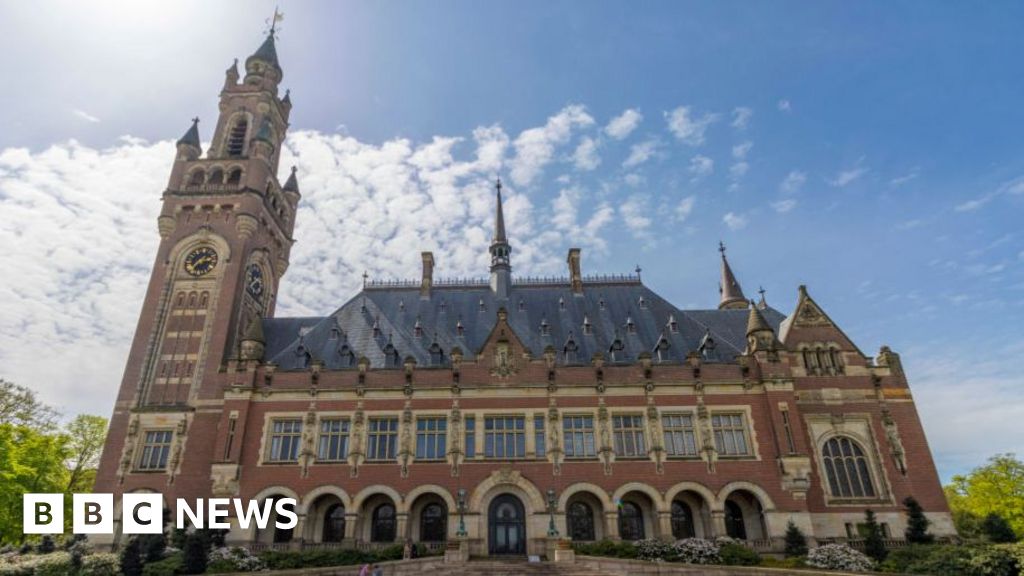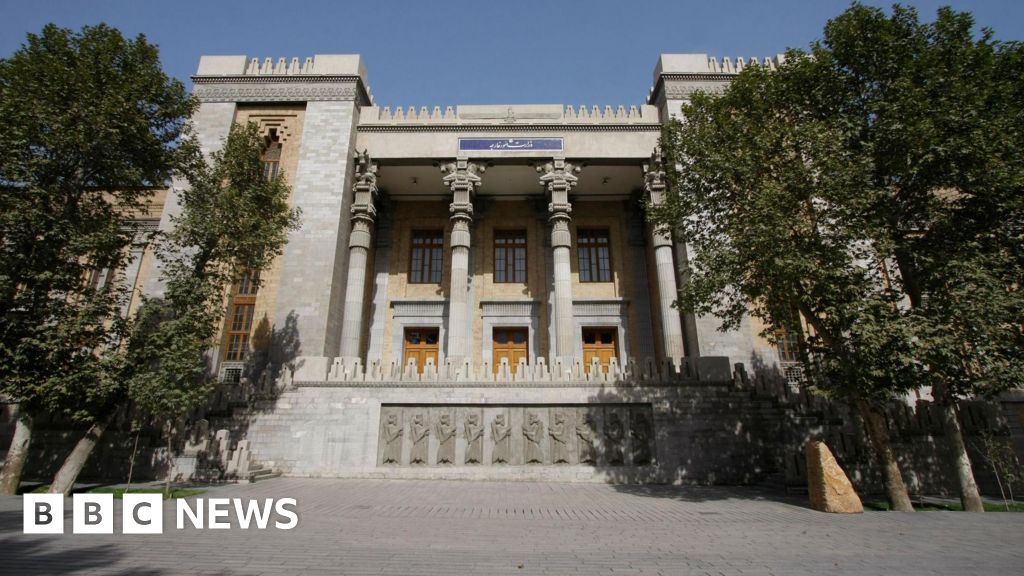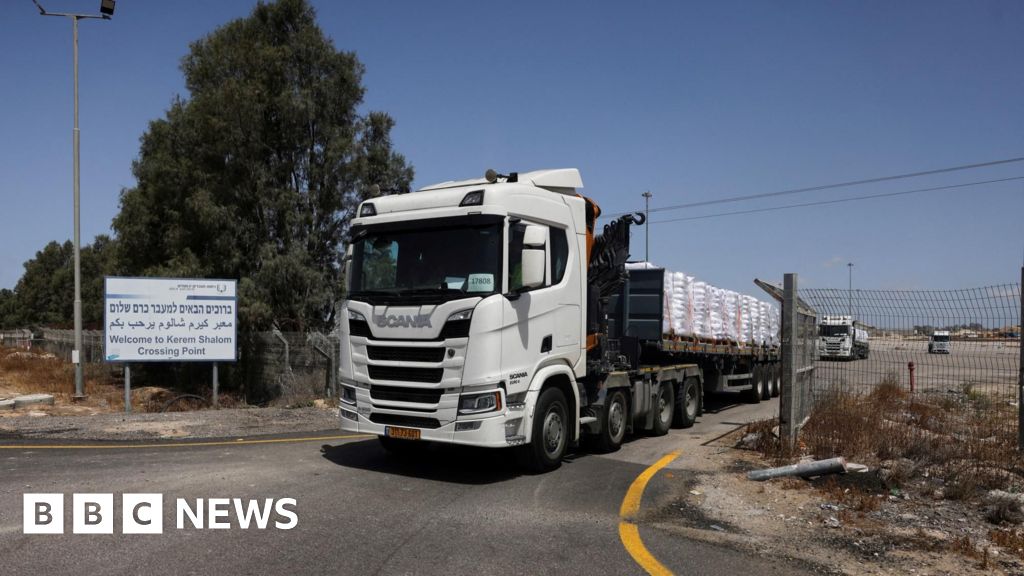ARTICLE AD BOX
By Katy Watson
Sao Paulo, Brazil
Image source, Getty Images
Gun culture was a key part of Jair Bolsonaro's winning campaign to become Brazil's president. Three years later, what impact has he had on the nation's relationship with firearms and how much has US politics played a part?
Rice and beans hold an important place in the heart of most Brazilians.
In this deeply divided country, where almost everything is politicised, at least the famous "feijao" is a food loved by everyone. That is, until recently - when Jair Bolsonaro tried to put a political spin on the humble bean.
"The left says that people don't eat guns, they eat beans," he joked. He had a few weeks earlier attacked his critics for saying that buying food was more important for Brazilians than buying firearms. "So when someone attacks your house, shoot beans at them," he said ironically.
It is yet another example of Bolsonaro sticking two fingers up at his critics. And they're well-used fingers. Throughout his campaign trail in 2018, he used them in a pistol hand gesture as a clear message to his supporters - even in a country with one of the world's highest rates of gun deaths, easing firearms laws was a top priority.
And on 15 January 2019, just two weeks after taking power, he made good on his promise. The Brazilian president signed a decree making it easier for Brazilians to keep weapons at home and at the same time, increasing the validity of gun licences from five years to 10.
Image source, Getty Images
It was, according to Bolsonaro, a step that would enable "upstanding citizens to have peace inside their homes".
And he's not stopped since. The president has now made more than 32 changes to the country's gun laws - they include increasing the number of guns you're allowed to own, looser restrictions on ammunition and the ability to buy more powerful weapons.
For Akira Ando, who owns a gun club in the town of Atibaia in Sao Paulo state, the past few years have seen a boom in business.
"The telephone just rang off the hook," says Akira of the response following the decree. "People who never even imagined they could have a firearm at home or for sport were calling up."
He's had to triple the number of people he employs on the administrative side - and he's got more than 2,500 members now. Until four years ago, it was closer to a thousand.
"The profile of person who comes to the club has changed in the past few years," says Ando. "Our strength is shooting as a sport but people come here to get the paperwork to own a gun, to be able to keep one at home or at work, to protect their family."
Image source, Getty Images
Image caption,A member of a shooting club in Rio shows off her new purchase
Business owner Elias Paulo Kury is one such member. A relative newcomer to shooting, he enjoys the club's atmosphere but is clear about one of his main motivations to pick up a gun.
"All the baddies are armed, why shouldn't we have the right to defend ourselves in our own homes? It doesn't make any sense," he says. "Nowadays, we're victims of everything that is happening around us," he says, adding that unemployment and poverty are propelling violence in the country.
Times have changed in Brazil.
In 2003, a Disarmament Statute was signed into law, tightening rules on weapons. The following year, there was a National Disarmament Campaign, which saw the handing in of more than half a million weapons.
But in 2005, a referendum was held asking people's views on an outright ban on gun sales. Even with guns a leading cause of death, Brazil's gun lobby campaigned hard, importing the US concept of a right to bear arms - in the end, the public voted NO to such a ban.
"We are seeing the NRA discourse being imported for Brazilian context and it's completely different," says Melissa Risso, a public security expert and director at Igarapé Institute in Rio de Janeiro.
"Here in Brazil, it's not a right to carry a gun, it's a concession by the state and they have strict rules. But since 2005, the gun lobby has tried to change the mindset of Brazilians in general. It didn't start with Bolsonaro."
But there's no doubt Bolsonaro has made the debate his own since taking power.
In fact, according to the Brazilian Forum of Public Security, as of 2020, the number of guns registered with the Federal Police has doubled since 2017. And in 2020 alone, 186,071 new weapons were registered - an increase of 97% in a year.
Image source, Getty Images
Samurai Caçador (Samurai Hunter in English) is a beneficiary of this new wave. A hunting fanatic and social media influencer, he regularly goes online to talk about guns, their merits and the challenges for regular gun-users.
"I was never into arms," he says, explaining that he came from a family where weapons were thought to go against family safety and life. "I wanted to know more about this world, I took the initiative to question it."
Samurai hunts wild boar - the only animal that can be legally hunted in Brazil and even then, only as a way to control numbers in the wild as opposed to a sport. But, like all aspects of guns here in Brazil, it's become increasingly popular. Between 2019 and 2020, there was a rise of nearly 30% in the number of hunting and collecting licences issued.
"I was transformed by this world so I want to use my experience to explain that weapons aren't a seven-headed beast," he says. "It's about freedom. It's a choice to be armed or not. It's a right that we will defend. Our president has always defended it. It's sacred."
But this, say experts, doesn't truly represent Brazil - a poor country of more than 200 million that saw over 50,000 deaths from firearms last year. Indeed, recent polls suggest two-thirds of people disagree with gun ownership.
"There is a part of Brazil for whom this US style gun culture makes some sense, but not for the majority of Brazilians," says Brian Winter, editor-in-chief of Americas Quarterly.
"Where most of Brazilians live - in the south-east and north-east along the coasts, these are big cities where this kind of assault-rifle toting culture makes no sense at all."
So why the US-style gun strategy then?
"I don't think there is a strategy, I think it's a reflection of the reality which is so much of Bolsonarismo being modelled after Trump," says Winter. "They clearly looked at the gun culture issue and said maybe we've got something here."
Image source, Getty Images
Image caption,In the US the issue is very polarising
Bolsonaro has always openly admired Trump and US culture and it's telling that several influential thinkers allied to the Bolsonaro government, such as Olavo de Carvalho and Rodrigo Constantino, live in the US.
But as with the Trumps, it's very much a family affair with the Bolsonaros. Son Eduardo is an influential member of the dynasty, forging relationships with the likes of strategist Steve Bannon. And the parallels between Eduardo Bolsonaro and Don Trump Jr posing with guns is not lost on Brazil watchers either.
"What you get is mostly the imagery and the macho posing with the AR15s," says Winter. "The visuals that are meant to project strength, I feel like [they are] often one or two degrees separated from Taliban imagery."
Image source, Getty Images
Image caption,Eduardo Bolsonaro at a pro-gun rally
But where now? Trump is no longer in power, and Jair Bolsonaro is yet to announce whether he will run for another term in next year's elections.
The pandemic has certainly hit his popularity but a year is a long time in Brazilian politics. No matter what politics you believe in, he's made an impact.
"When we look at the data, every serious study that has been conducted has shown if you have more guns, you have more violence especially in a country like Brazil," says Melissa Risso.
"The damage is really huge in Brazil in terms of all the regulation they made, the weakening of the laws and how many guns are already in the population's hands. We will have a lot of consequences for many years."

 3 years ago
50
3 years ago
50








 English (US) ·
English (US) ·